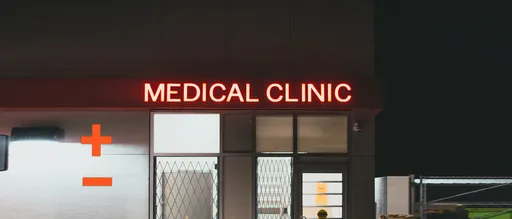“America’s healthcare system is in crisis precisely because we systematically neglect wellness and prevention.” ~ Senator Tom Harkin, Iowa

A Review of Preventive Medicine – Pros and Cons
This article objectively reviews preventative medicine as an approach to optimal health outcomes. The goal is for the reader to understand if a preventive approach is a good fit for their needs and resources.
We live in a society and culture that is radically different than just twenty years ago. If you are over 40 years old, the way you live is far different than your childhood. Those over 40 grew up in an analog world where one could unplug; screen time wasn’t even a thing then. You had space or margin.
Without intentionality on your part, there is no space, no margin anymore.
Our culture is in constant stress response mode, always connected to a device, always available, with our work expecting instantaneous replies, no matter where we are. It’s a significant reason why burnout is increasing in all professions.
Individuals over 45 years old commonly experience anxiety, uncontrolled stress, sleep disturbances, mood problems, and challenges with emotional control.
The reason is we as a society are depleted. This reality leads to consequences for health.
Middle-aged individuals with primary responsibilities commonly feel mental and physical exhaustion, struggle with retaining weight around their waistline, report brain fog, and lack the productivity they once had, resorting to caffeinated drinks to get through their day.
Many are on the verge of metabolic syndrome (conditions that increase the risk of heart disease, stroke, and diabetes).
For these reasons, many individuals are choosing to bypass the traditional healthcare system, which focuses on sick care. The alternative is to explore preventative programs that proactively address their health risks and conditions before they move into full-blown disease.
In this article, I’ll address the following four areas of my review:
- Overview of Preventive Medicine
- Grading Criteria
- Pros and Cons
- Who is a Good Fit?
Overview of Preventive Medicine
Preventative medicine as an approach is holistic and comprehensive.
It is not an event but a process where the individual learns to make lifestyle changes and form new habits, all to improve their internal physiological environment for cells to thrive.
Preventative medicine aims to redesign patient lifestyles to support their medical transformation investment.
Clients typically see improvement as a result of root-cause testing, leading to targeted treatment rather than guessing.
Additional gains come as lifestyle changes targeted at areas of concern begin to take root over time.
Grading Criteria
Approach – Grade A
Functional medicine doctors use an approach based on root cause analysis of testing data which is preventative medicine.
Physicians start with the philosophy of what makes cells thrive and work backward. Comprehensive testing and imaging data provide a mosaic of information for the clinician to connect the dots in finding a unique pathway for each client to return to optimal health.
Lifestyle change, implementation of habits, and targeted supplementation, as opposed to prescription drugs, are the tools of choice.
Science – Grade A
Preventative medicine physicians are trained in board-certified medical schools and the hard sciences, evidence-based methods, and treatments rooted in sound research.
From there, the principles of root-cause functional medicine are applied in the testing, diagnosis, and treatment phase.
Personalization – Grade A
Personalization occurs in several dimensions in preventative medicine.
First, personalization occurs if the physician utilizes genetic testing, which is the ultimate personalization. No two individuals have the same genetic markers.
Genetic testing enables clinicians to understand an individual’s weak areas and support those markers to prevent those genes from expressing.
Second, based on an extensive health history intake process, physicians customize testing to personalize each client’s results to fit their health profile.
Finally, each client receives a personalized treatment plan from a functional medicine doctor.
Convenience – Grade C
Since most clients are individuals with significant responsibilities and time pressure, it is not easy to engage with a preventative medicine program.
Popping a pill is not the answer. It’s real work to make lasting lifestyle changes.
It’s also more expensive and takes time to commit to the testing and the new habits required.
Investment – Grade C
When you beat the disease before it manifests in your body proactively, you choose to invest in your health.
Traditional medical practices are built on an insurance-based payer system. The economics of their practice does not support preventative medicine practices.
Therefore, you will need to change your mindset from a healthcare consumer to an insurance company (where your care is outsourced) to a health investor (where you take control of your health proactively).
Pros and Cons
Pro’s
- Functional, root-cause approach.
- Sound, innovative science.
- Comprehensive, multi-therapy system.
- Doctor supports the client in implementing behavior change.
- Highly personalized and matched to client needs.
Con’s
- Larger one-time investment of personal funds.
- Not covered by insurance.
- Requires more time for office visits.
Who is Not a Good Fit?
Poor-fit individuals are merely interested in change and learning about their health; they lack a commitment to change. They expect instant results, yet they have over-busy lives causing them not to implement the changes they want to make.
Since they fail to prioritize the process, they take too long to complete tests which delays treatment plan implementation and results.
Poor-fit individuals then blame the physician for their lack of results rather than prioritizing their health investment.
Poor-fit individuals will look at preventive medicine as a cost, not an investment, and resent the amount of money they need to spend on their health. They fail to make the connection between good health and their ability to live life the way they want to live.
Individuals with insufficient financial resources will also not be a good fit for preventative programs due to their reliance upon insurance to fund health care.
Who is a Good Fit?
The individuals that thrive the best in a preventative medicine system are aware of their health condition, recognize the need to change, and are committed to making the changes necessary to transform their health.
Best fit clients understand their current health occurred over decades, so they don’t expect instant results. They are those who believe they can become healthy and are willing to overcome and push through the steps that can take some time to complete.
Good-fit clients are curious, want to learn, and are coachable.
Best-fit clients can apply new disciplines and healthy habits into their daily routines. Good-fit clients prioritize their engagements with their physicians.
Finally, good-fit individuals have the financial resources to invest in the cash price or make installment payments over time to get the results they are looking for.
Individuals with an investment mindset will do best, understanding that investing in health provides priceless life-long returns.
Next Steps
Hopefully, by now, you have a good idea of whether a preventative medicine program is a good fit for you to take the next step in your discovery process.
For some individuals, now is not a good time. That’s ok; sometimes, individuals who were not ready become ready later.
For some, the financial investment is not feasible. That’s understandable; for many years, while building careers and families, most cannot make that kind of investment, even though they need it!
If this is true for you, look at your local functional doctor’s options to start the process slowly and build over time rather than trying to do everything at once.
If you are in a place to invest at the level required, and you’ve identified that you are a good fit in all respects, as outlined above, then I would encourage you to review the following articles below.
Watch their companion videos and consider meeting one of our professionals at Tiger Medical to learn more about your next steps.
- What Does a Personalized Medicine Program Cost?
- How to Compare and Choose the Best Provider for Your Health Optimization
- Nine Considerations When Choosing a Personalized Medical Program
- The Eight Most Common Questions About Tiger’s Personalized Medical Program
If you are ready to take your next step in the discovery journey, click here to meet with one of us at Tiger. Your first call with us is about you, to learn where you are in your health journey and if you are ready to take the next step.
I wish you the best in your health research journey!



 7min to read
7min to read

 10min to read
10min to read